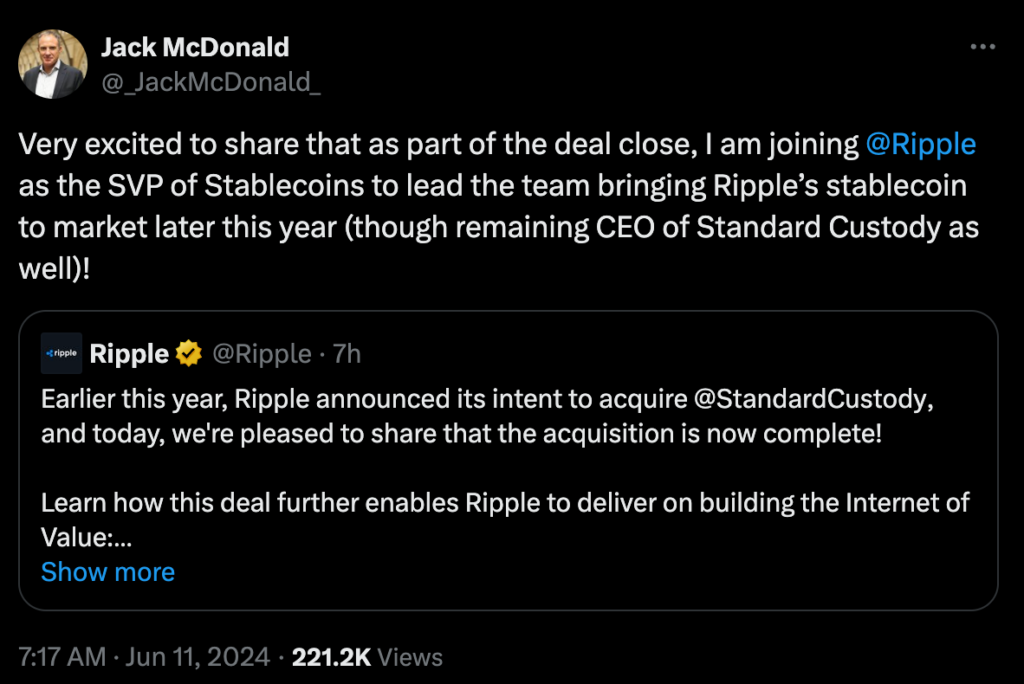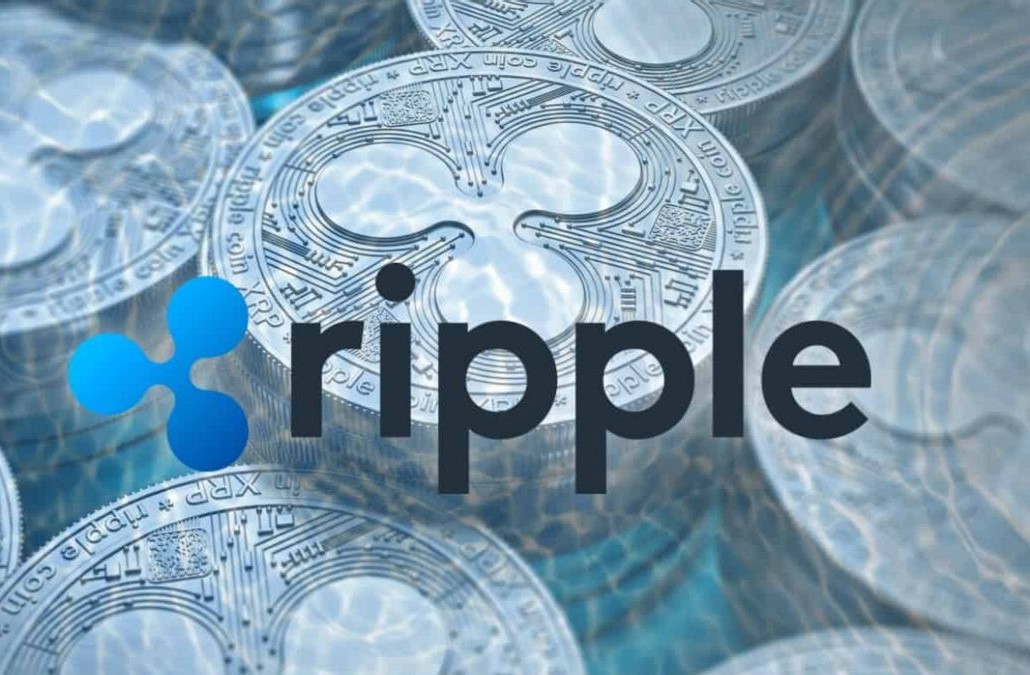Ripple Labs closes Standard Custody acquisition deal, and Jack McDonald will remain CEO of Standard Custody and senior vice president of stablecoins at Ripple.
Ripple Labs acquired Standard Custody, a digital asset custodian, on June 11. The agreement, initially disclosed earlier this year, is essential to Ripple’s overarching objectives of real-world asset tokenization and the implementation of a stablecoin in the United States currency.
Jack McDonald, the CEO of Standard Custody, will be designated as Ripple’s senior vice president of stablecoins as part of the agreement. He will continue to serve as the CEO of Standard Custody.

Ripple emphasized the licensing of Standard Custody as a fundamental aspect of the digital asset custodian, attributing this to the regulatory approval of the New York Department of Financial Services (NYDFS), one of the most stringent financial regulators in the digital assets field.
In 2023, Ripple acquired Metaco, an additional digital asset custody firm, for $250 million. This acquisition of Standard Custody follows suit.
The belief that the institutional crypto custody industry will reach $10 trillion by 2030 was a critical factor in Ripple’s acquisition of Metaco, as banks increasingly look to provide digital asset custodial services to their customers.
According to Chainlink, the emergence of real-world asset tokenization is a market that could expand to over $800 trillion if all of the world’s capital assets are tokenized and included in the sphere of custody services.
Ripple Labs, Chainlink, and Algorand have prioritized tokenizing real-world assets; the tokenization market is the next significant frontier for digital assets, blockchain technology, and cryptocurrencies.
In May, the Depository Trust and Clearing Corporation (DTCC) released its report on a real-world asset tokenization pilot program between the DTCC and several significant banks, including JP Morgan, Edward Jones, and BNY Mellon. The program utilized Chainlink’s CCIP interoperability protocol.
The objective of the experiment was to evaluate the tokenization of fund data and to simulate the transition of real-world data to the blockchain.
The DTCC’s report identified numerous advantages of blockchain tokenization, such as establishing “dynamic data management across the life cycle of an asset,” reducing the necessity for record-keeping and automated data management and providing real-world transparent APIs for customers.
Ultimately, the pilot program offered a glimpse into the potential future applications for banks and other institutional operators interested in incorporating blockchain tokenization into their products and services, such as automated data transfers or brokerage applications.



